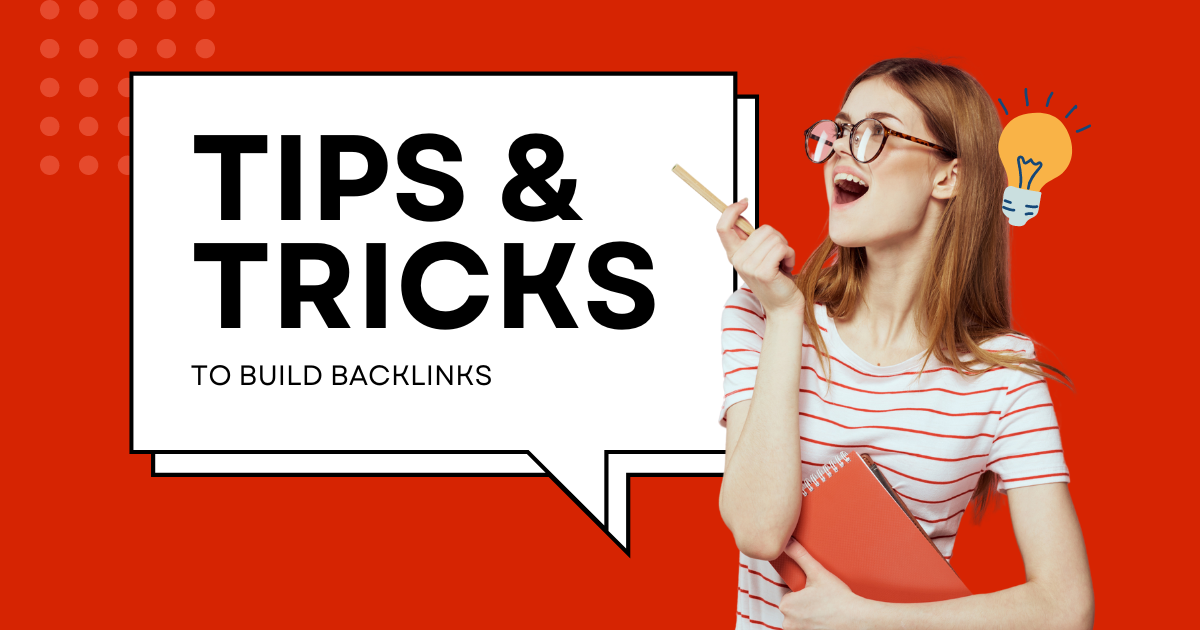SEO Tips to Remember When Building Quality Backlinks
“Quality backlinks can make all the difference. Follow these SEO tips to remember when building links that help your site stand out and rank higher effortlessly.”
Building backlinks isn’t just about throwing your website link out there and hoping for the best. It’s like building relationships—stronger links can actually increase your website’s reputation and rankings.
The value of backlinks depends on the quality, not the quantity. Quality backlinks prove to search engines that your content is useful and trustworthy, and that’s how you rank higher.
In this post, I’ll share some SEO tips to remember when building high-quality backlinks. These are easy to follow and will guide you in building strong links for your site.
By the end, you’ll know what makes a backlink valuable and how to build it properly.
Keep reading to find out more!
1). Start with Relevant Content
If you want to build backlinks, your content has to be linkable. No one will share something that doesn’t provide value, right?
That’s why starting with relevant content is one of the SEO tips to remember. When you create content that people actually want to read and share, backlinks will follow.
So, how do you make your content stand out and get backlinks?
- Make it useful: Share tips, insights, or solutions to real problems. Content that solves a problem or answers a question is more likely to get shared.
- Use visuals: Infographics are great for breaking down complicated info into something easy to understand and share.
- Do your research: Original research or case studies will get attention.
Here’s a simple tip: keep your audience in mind at all times. If your content makes them go, “Oh, I need this,” you’re already halfway there.
When your content speaks to their needs, it’s more likely to get backlinks from blogs, forums, and social media.
Creating high-quality content isn’t just about quantity—it’s about offering something of value.
2). Build Relationships in Your Niche
When it comes to getting backlinks, relationships matter. The idea is simple: people will link to your content if they know and trust you.
That’s why networking with influencers and peers in your niche is one of the backlink tips to remember. You’re not looking for quick links; you’re building long-term relationships.
So, how do you make these connections?
- Guest blogging: Contact websites in your field and offer to write for them. For example, if you’re a marketing agency College Station, offering expert insights on digital marketing in your area can open doors.
- Collaborations: Partner with someone in your niche. A joint webinar, interview, or even a shared blog post can create backlink opportunities.
- Personalize your outreach: Instead of sending the same message to everyone, take the time to personalize your approach. Mention a specific article you liked or point out something unique about their site.
The goal is to add value to their content and get a backlink in return. Relationships take time, but when done right, they can lead to powerful backlinks that will help grow your site’s authority over time.
Remember, people link to people, not just websites!
3). Focus on Authority Sites
Getting backlinks from authority sites is one of the backlink tips to remember. Search engines trust these high-ranking sites, so a backlink from them will increase your credibility and help your site rank higher.
So, how do you find authority sites? Look for sites with high domain authority (DA). You can use tools such as Ahrefs or Moz to check a website’s DA score.
The higher the score, the more valuable a backlink from that site will be. For example, a backlink from a well-known news site like Forbes or an industry leader’s blog can do wonders for your SEO.
Here are a few steps to pitch your content:
- Do your research: Before you pitch, make sure your content aligns with the site’s audience. For example, if you’re pitching a tech blog, your content should be about the latest trends or innovations in technology.
- Personalize your pitch: Don’t send generic emails. Mention specific articles or posts from their site and tell them how your content will be helpful to their readers.
- Be clear about what you offer: Highlight how your article will be relevant and helpful to their readers, making it easier for them to say yes.
Building relationships with these authority sites takes time, but it’s worth the effort when you see the results in your rankings.
3). Leverage Broken Link Building
Broken link building helps you get good backlinks, and it’s easier than you think. Essentially, you’re helping other websites by pointing out broken links on their pages and offering your content as a replacement.
It’s a win-win: they fix their broken link, and you get a backlink. This is one of the backlink tips to remember for anyone looking to improve their link-building game.
To find broken links, you can make use of tools such as Ahrefs, Screaming Frog, or Check My Links (a Chrome extension).
These tools scan websites for broken links that need fixing. Once you find a broken link that matches the content you’ve already written or are willing to write, you’re ready to make your move.
Here are a few tips to make your outreach email successful:
- Keep it simple: Let the site owner know about the broken link in a polite way. Don’t overcomplicate your message.
- Offer value: Mention you have similar content that can replace the broken link. Make it easy for them by including a link to your content.
- Be specific: Make sure to mention where you found the broken link so they don’t have to search for it.
Broken link building is a great way to grow your backlink profile. And always follow the SEO starter guide to do it right!
4). Use Guest Blogging to Your Advantage
Guest blogging is one of the best SEO tips to remember when you’re working on building quality backlinks.
By writing for other websites in your niche, you can reach a new audience, increase your credibility, and get a valuable backlink to your own site. But there’s a right way to do it.
To start, you’ll need to find blogs that accept guest posts. Look for high-traffic blogs in your industry. You can search Google for terms like “write for us” or check out websites like AllTop, which lists popular blogs by category.
Once you’ve found a blog take time to review their content so you can craft a pitch that resonates.
Here are a few tips for guest blogging content:
- Tailor your content: Make sure your article fits the tone and style of the blog you’re writing for. If they focus on actionable advice, provide step-by-step tips.
- Include value for their audience: Always put what will benefit their readers first. This increases the chance your post will be accepted and shared.
- Don’t be too promotional: Don’t make your guest post about your product or services. Instead, provide useful information.
The biggest mistake in guest blogging is treating it like free advertising. The goal is to offer value while building relationships, not just getting a backlink.
6). Don’t Forget Local Backlinks
When you’re targeting a local audience, local backlinks are super valuable.
It’s one of those SEO tips to remember that can help increase your local search rankings and build trust with your nearby customers.
Here’s how to leverage local backlinks:
- Connect with local influencers: Reach out to local bloggers, business owners, or community leaders. For example, if you own a small café, getting featured by a local food blogger or community website can bring in new customers and boost your backlink profile.
- List your business in local directories: Websites like Yelp or even your local chamber of commerce directory allow businesses to include their website links when registering. These backlinks not only help local SEO but also increase your visibility.
Also, don’t miss out on community events. Participating in or sponsoring local events often gets your business mentioned on local websites, blogs, or news outlets. These mentions usually come with backlinks, which helps your SEO.
Finally, keep your Google My Business profile updated with your website link. It increases the chance of your business showing up in local search results and helps you connect with other local businesses, which can lead to more backlinks from community sites and blogs.
7). Monitor Your Backlink Profile
Keep an eye on your backlinks is very important. If you don’t know who’s linking to your site, you might miss out on issues that can hurt your ranking.
One of the SEO tips to remember is not all backlinks are good for you. Some can actually bring your site down.
To make sure your backlinks are helping you, you can use tools like SEMrush. This tool will show you who’s linking to your site and how good those links are. It can help you spot any bad or spammy links that might be dragging you down.
If you find bad backlinks, don’t worry—you can disavow them. This means telling search engines to ignore those bad links.
Here’s how you can do it:
- Identify the bad links: Use your monitoring tool to find links from spammy or low-quality sites.
- Create a disavow file: List all the bad links you want to disavow.
- Submit to Google: Go to Google’s Disavow Tool and upload your file.
By monitoring your backlink profile regularly, you can catch problems early and keep your site healthy. Remember, it’s easier to fix issues before they become big problems.
8). Avoid Bad Backlink Practices
When it comes to backlinks, not all strategies are good for your SEO.
Bad practices like link farming, buying backlinks, or using excessive reciprocal links can harm your site big time. If you want long-term success, focus on ethical strategies.
- Link farming is when a group of websites all link to each other just to manipulate search rankings. It might seem like a quick win, but search engines can catch onto it fast, and you can end up with a penalty.
- Buying backlinks is another risky move. It may seem tempting, but buying links from low-quality sites will hurt your SEO in the long run. Search engines are strict about this, and it can cause your rankings to drop.
- Excessive reciprocal links (where two sites link back and forth) can also raise red flags. While some back-and-forth linking is fine, overdoing it can make search engines think you’re trying to game the system.
Instead, focus on ethical backlink-building strategies:
- Create content that others want to link to.
- Reach out to relevant sites with personalized pitches.
- Guest blog or collaborate with industry peers.
The key is to play the long game—focus on quality, not quantity, and you’ll see steady, sustainable results.
Conclusion
We’ve covered some of the SEO tips to remember when building quality backlinks.
From creating content that people want to link, to building real relationships in your niche and monitoring your backlink profile—it’s all about doing it right.
Remember, it’s better to have a few good links than tons of bad ones.
Focusing on quality over quantity will set your website up for long-term success. It might take a bit more effort, but the results are worth it.
So take the time to build those strong backlinks, and you’ll see your site grow and thrive over time.





